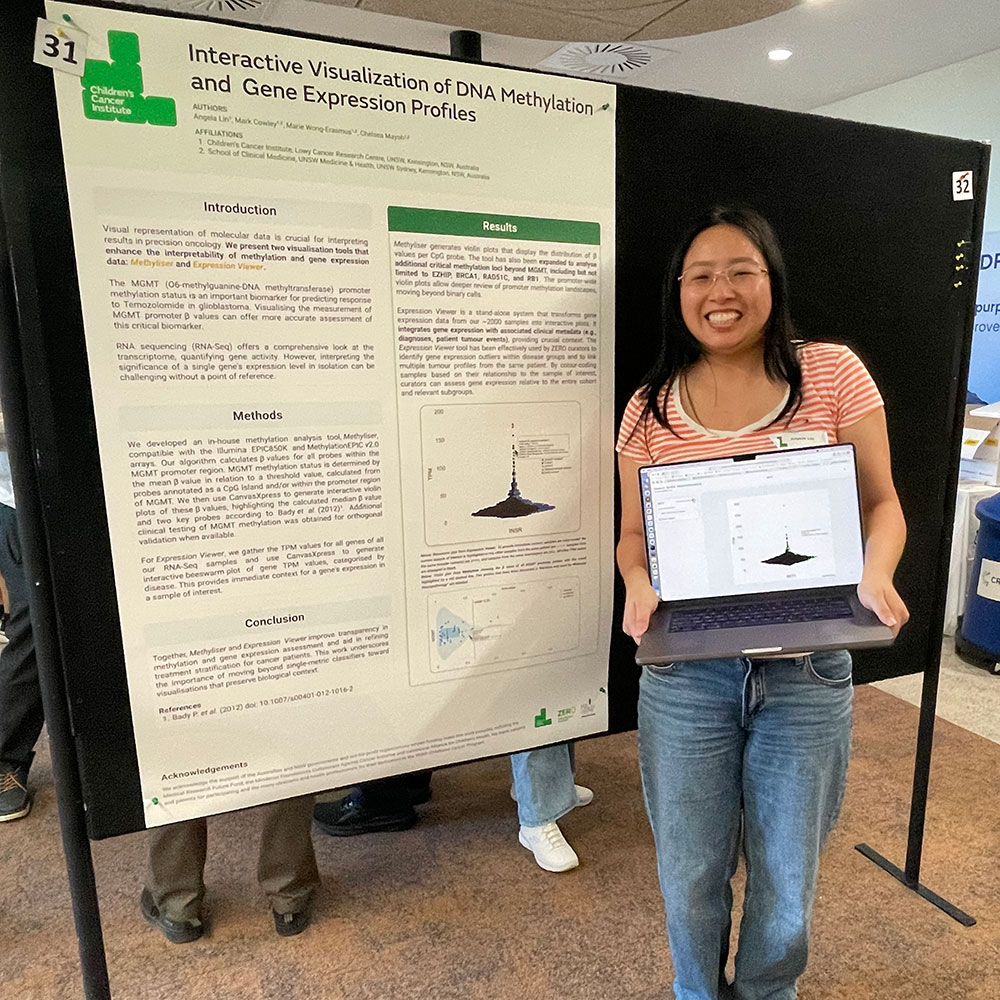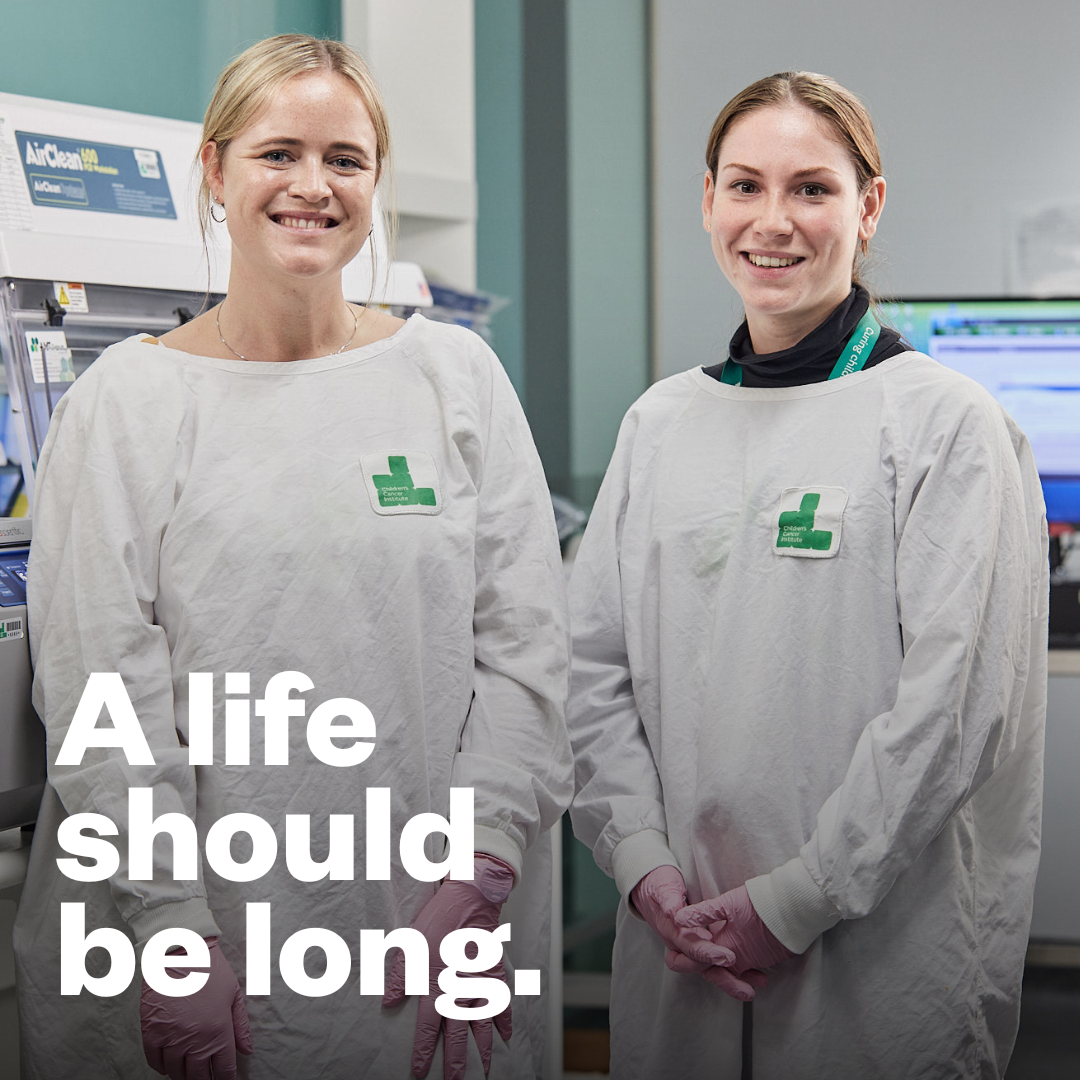Each year, around 150 Australian children are diagnosed with acute lymphoblastic leukaemia or ALL, the most common childhood cancer. Around 15% will have an aggressive subtype of ALL known as T-ALL which affects T-cells. Children with T-ALL are generally less responsive to therapy and more likely to relapse. A potential drug for T-ALL, OBI-3424, generated some excitement in the cancer research community this week.
Our Leukaemia Biology team, led by Prof Richard Lock, tested the compound OBI-3424 as part of the Preclinical Pediatric Testing Consortium. Co-ordinated by the US National Cancer Institute (NCI), our lab at Children’s Cancer Institute is one of five sites in the Consortium and the only one outside the US.

Professor Richard Lock in the lab
How we test future drugs
We assess future leukaemia drugs in mice expressing different leukaemia subtypes. This is an important way of finding compounds that may one day be developed into safe, effective leukaemia drugs for children.
In the lab, we assess the safety and effectiveness of the potential drugs, monitoring their effects over time and then give them a rating. Those achieving a ‘maintained complete response’ with low toxicity are the most successful and are prioritised for going forward to clinical trials, their first test in human patients.
In recent preclinical testing in our labs, OBI-3424 showed ‘profound efficacy’ in mice with T-ALL and had low toxicity. Prof Lock presented the results in a scientific poster session at the AACR-NCI-EORTC International Conference on Molecular Targets and Cancer Therapeutics. The poster was titled “The AKR1C3-Activated Prodrug OBI-3424 Exerts Profound In Vivo Efficacy Against Preclinical Models of T-Cell Acute Lymphoblastic Leukemia (T-ALL); a Pediatric Preclinical Testing Consortium Study”.
In a media statement, Professor Lock said he was very impressed with the results.
“OBI-3424 is one of the most effective drugs we have ever tested against T-ALL in over 12 years of evaluating drugs at the Children’s Cancer Institute using preclinical models of aggressive childhood ALL.
“We are incredibly excited about the potential for OBI-3424 to improve the treatment and quality of life for patients with this aggressive type of cancer.
“We look forward to having this potential evaluated in clinical trials”
How OBI-3424 works
OBI Pharma described OBI-3424 as a new small-molecule prodrug, the first of its kind, that selectively targets cancers overexpressing the enzyme aldo-keto reductase 1c3 (AKR1C3). AKR1C3 overexpression has been documented in a number of treatment-resistant and difficult-to-treat cancers including T-ALL.
Patients with tumours overexpressing AKR1C3, the patients most likely to respond to OBI-3424 treatment, could be individually identified through specialised immunohistochemistry testing.
Dr Tony Yu, Chief Scientific Officer of Taiwan-based OBI Pharma, says the next step is to move toward clinical trials with U.S. Food and Drug Administration (FDA) filing for OBI-3424 planned for early 2018.
“We are eager to advance the further development of OBI-3424 to fulfil the unmet needs for cancer patients who express the AKR1C3 enzyme,” he said.
Read more about our Leukaemia Biology research and preclinical testing and view the technical poster presented at the conference.
Top image: OBI-3424 poster at the AACR-NCI-EORTC conference in Philadelphia, 26-30 October 2017. Dr Malcolm Smith (US National Cancer Institute) on far left, Prof Richard Lock (Children’s Cancer Institute) second from left and on the right, representatives from OBI Pharma.















